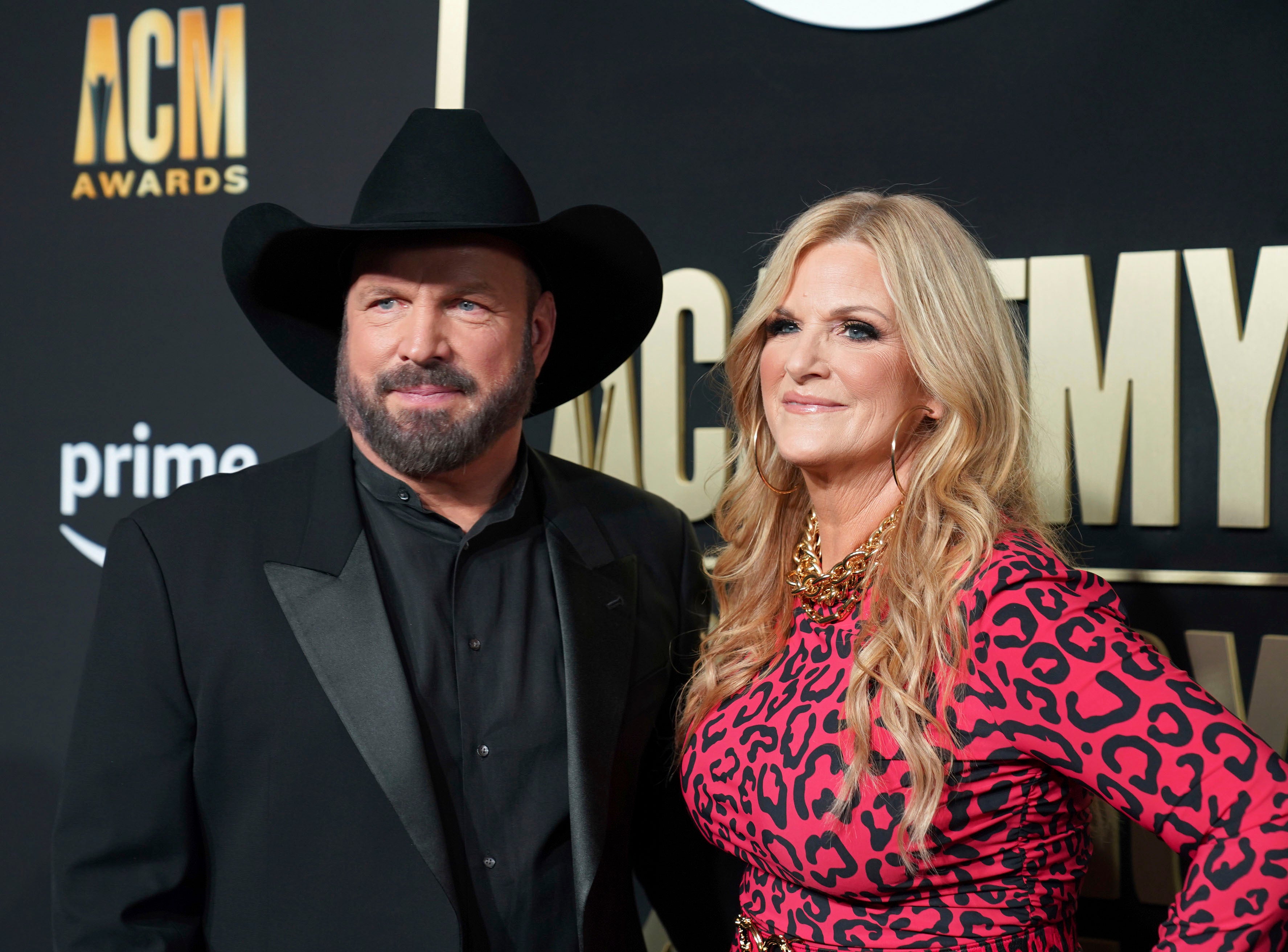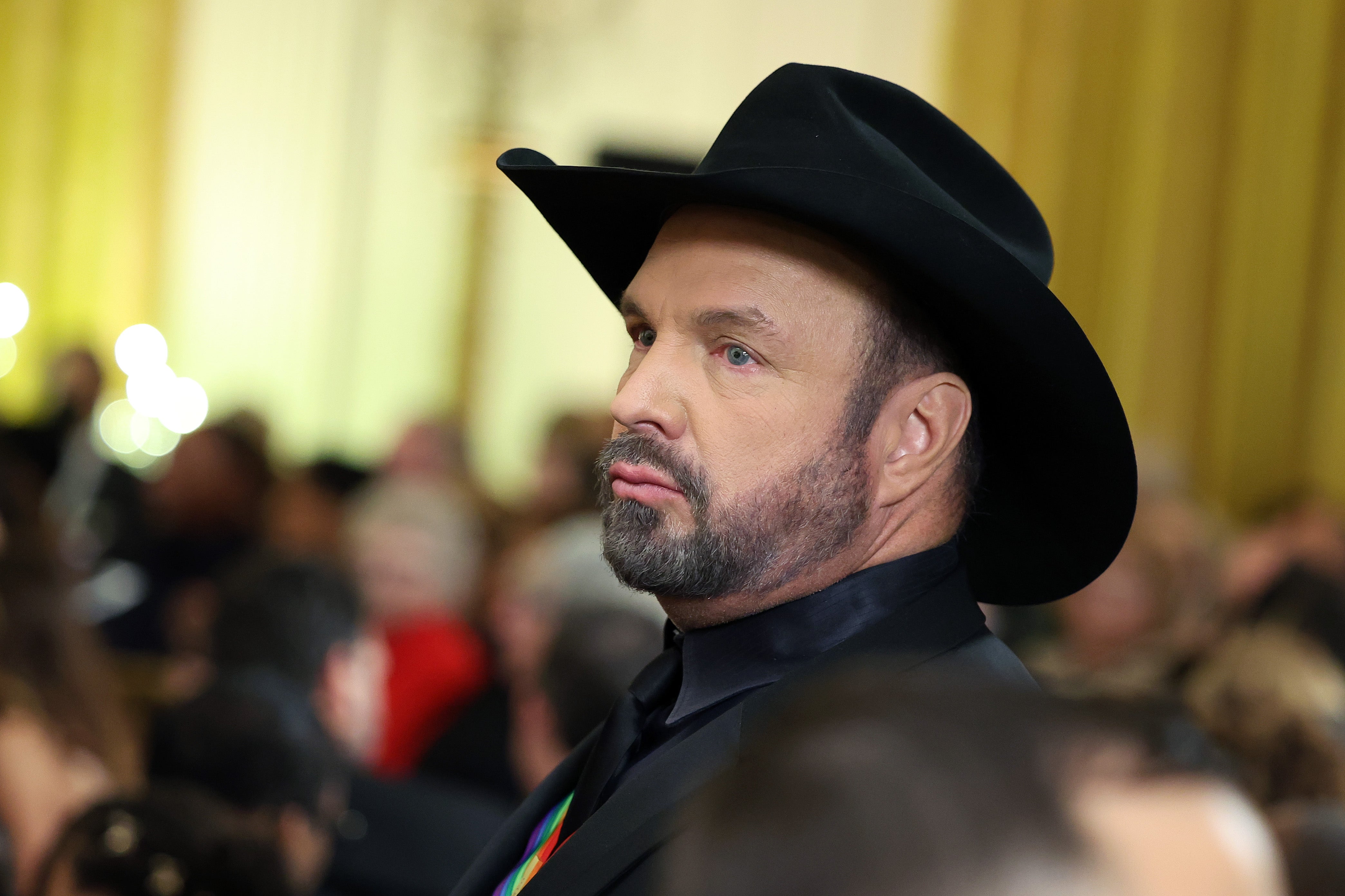Who is Garth Brooks, the country music giant accused of rape?
Grammy-winning musician, who is one of country’s biggest stars, has denied the allegations against him
Your support helps us to tell the story
From reproductive rights to climate change to Big Tech, The Independent is on the ground when the story is developing. Whether it's investigating the financials of Elon Musk's pro-Trump PAC or producing our latest documentary, 'The A Word', which shines a light on the American women fighting for reproductive rights, we know how important it is to parse out the facts from the messaging.
At such a critical moment in US history, we need reporters on the ground. Your donation allows us to keep sending journalists to speak to both sides of the story.
The Independent is trusted by Americans across the entire political spectrum. And unlike many other quality news outlets, we choose not to lock Americans out of our reporting and analysis with paywalls. We believe quality journalism should be available to everyone, paid for by those who can afford it.
Your support makes all the difference.Country singer Garth Brooks has denied allegations of rape and battery by a former hair and makeup artist, following a lawsuit claiming he assaulted her in a hotel during a work trip in 2019.
The anonymous accuser, referred to in the complaint as “Jane Roe”, also alleged that Brooks repeatedly groped her and made sexually explicit comments while she was doing his hair or makeup throughout 2019.
In the lawsuit, she claimed that the Grammy-winning singer exposed himself to her on many occasions and told her about his sexual fantasies.
She said that she was forced to continue working for him due to financial hardship, which she alleged that he was aware of and exploited.
In a statement, Brooks, 62, called the allegations “lies” and said he was “incapable” of committing the behaviour he was being accused of.
“I trust the system, I do not fear the truth, and I am not the man they have painted me to be,” he said.

One of the biggest country music stars of the Nineties, Brooks continues to sell millions of records and sell out shows around the US.
He was born Troyal Garth Brooks in Tulsa, Oklahoma in 1962, the youngest child of Troyal Raymond Brooks, an oil company draftsman, and his mother Colleen, also a singer. Encouraged to sing from a young age, and learnt to play both the guitar and banjo, he began to perform in local clubs and bars. Brooks was discovered by an entertainment lawyer who offered to produce his first demo; he moved to Nashville in 1987.
His self-titled debut album was released in 1989 and featured singles including “If Tomorrow Never Comes”, his first No 1 single on the Hot Country Songs chart, earning him a support slot with the late country-pop artist Kenny Rogers.
Enjoy unlimited access to 100 million ad-free songs and podcasts with Amazon Music
Sign up now for a 4 month free trial (3 months for non-Prime members)
Enjoy unlimited access to 100 million ad-free songs and podcasts with Amazon Music
Sign up now for a 4 month free trial (3 months for non-Prime members)
Brooks released his second album, No Fences, in 1990, which asserted him as one of the decade’s biggest new stars and included what is now his signature song, “Friends in Low Places”. No Fences spent 23 weeks at No 1 on the Billboard Top Country Albums chart and also placed at No 3 on the Billboard 200. He was inducted into the Grand Ole Opry later that year.

As a country artist, he proved controversial in Nashville’s notoriously conservative industry due to his public pro-LGBT+ stance. His 1993 song “We Shall Be Free”, which was boycotted by some country radio stations, included the lyric: “When we’re free to love anyone we choose.” The accompanying music video starred lesbians Martina Navratilova and Lily Tomlin among the celebrity cameos.
In a 1999 interview with George, he remarked: “But if you’re in love, you’ve got to follow your heart and trust that God will explain to us why we sometimes fall in love with people of the same sex.” In 2023, he refused to boycott Bud Light amid a backlash over its partnership with transgender influencer Dylan Mulvaney, instead continuing to serve it at his Nashville bar, Friends in Low Places Bar & Honky Tonk. Brooks has credited his half-sister, musician Betsy Smittle, as an influence behind his support for same-sex marriage.
Brooks has been married twice, first to songwriter Sandy Mahl, with whom he shares three daughters: Taylor, August and Allie. He also has a granddaughter, Karalynn, born to August and her partner Chance Michael Russell. Brooks and Mahl separated in 1999; their divorce was finalised two years later. He married country singer and cookbook author Trisha Yearwood in 2005.

Undoubtedly one of the oddest chapters in Brooks’ career was his infamous alter-ego, Chris Gaines, a brooding and sex-addicted alt-rocker who released a faux-greatest hits record, Garth Brooks Presents… The Life of Chris Gaines, in 1999.
Intended to accompany the never-released mystery-thriller The Lamb, in which Brooks was set to star, the album flopped with sales of just two million and was panned by critics who suggested the singer was suffering “some serious identity issues”. He has reportedly refused to talk about it since – a 2019 Daily Beast article about the ill-fated record included a comment from his publicist, who said: “Garth doesn’t talk about Chris Gaines anymore.”
Brooks’s stance on streaming has also made headlines over the years and has been involved in a number of disputes over royalties. In 2014, he launched a competitor to iTunes, GhostTunes after refusing to allow his music to be sold on the platform. Two years later, he signed an exclusive deal with Amazon to bring his songs to streaming, explaining his logic that the conglomerate could sell physical copies of albums as well.
“The fact is that Amazon is a retailer as well,” he said at the Country Radio Seminar in Nashville last year. “So you can sign your streaming deal, but part of that [is] to move those physical units so the songwriters get paid… I still up for the songwriters because I’m freakin’ one of them!” he continued. “Everything I do for the songwriters, I do for myself.”

In 2015, Brooks topped the annual Forbes list of the world’s highest-paid country acts, with an estimated $90m (£68m) in earnings over the past year. That year, he had resumed touring for the first time in over a decade, selling more than 2.5 million tickets to arena shows around the US. According to his official website, he remains the number one-selling solo artist in US history, claiming 20 Billboard No 1 singles and 157 million record sales. He has been nominated for 13 Grammy awards and won twice, including for the title track of his third album, 1991’s Ropin’ the Wind.
His most recent album, Time Traveler, was released last year and explores the history of country through its 10 tracks.
In a statement addressing the allegations against him, Brooks told Deadline through his representatives: “For the last two months, I have been hassled to no end with threats, lies, and tragic tales of what my future would be if I did not write a check for many millions of dollars. It has been like having a loaded gun waved in my face.”
He continued: “Hush money, no matter how much or how little, is still hush money,” he continued. “In my mind, that means I am admitting to behaviour I am incapable of, ugly acts no human should ever do to another.”
In a statement to CNN, attorneys acting on his accuser’s behalf said that they were “confident that Brooks will be held accountable for his actions”.
“We applaud our client’s courage in moving forward with her complaint against Garth Brooks,” the statement said. “The complaint filed today demonstrates that sexual predators exist not only in corporate America, Hollywood and in the rap and rock and roll industries but also in the world of country music.”
Rape Crisis offers support for those affected by rape and sexual abuse. You can call them on 0808 802 9999 in England and Wales, 0808 801 0302 in Scotland, and 0800 0246 991 in Northern Ireland, or visit their website at www.rapecrisis.org.uk. If you are in the US, you can call Rainn on 800-656-HOPE (4673)
